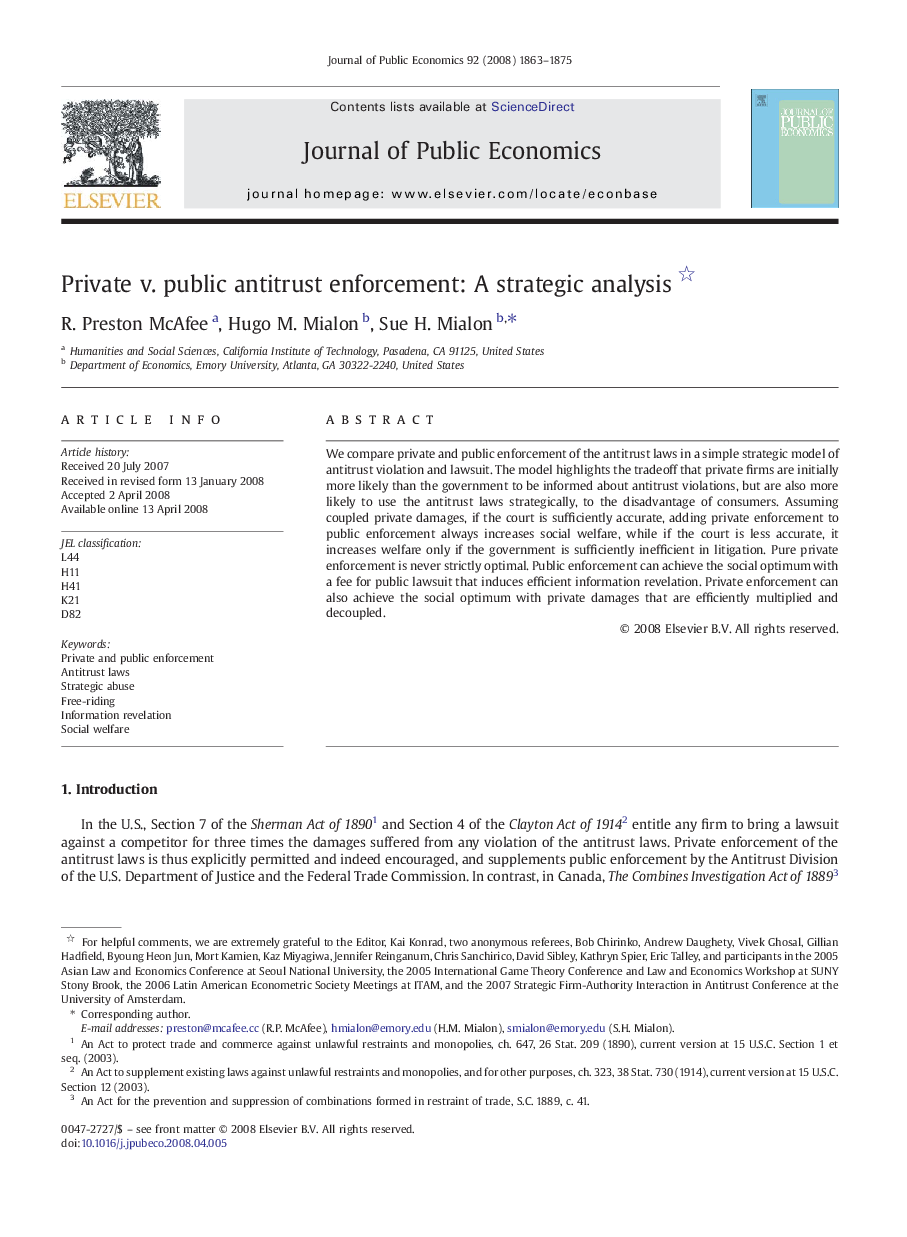| Article ID | Journal | Published Year | Pages | File Type |
|---|---|---|---|---|
| 970240 | Journal of Public Economics | 2008 | 13 Pages |
We compare private and public enforcement of the antitrust laws in a simple strategic model of antitrust violation and lawsuit. The model highlights the tradeoff that private firms are initially more likely than the government to be informed about antitrust violations, but are also more likely to use the antitrust laws strategically, to the disadvantage of consumers. Assuming coupled private damages, if the court is sufficiently accurate, adding private enforcement to public enforcement always increases social welfare, while if the court is less accurate, it increases welfare only if the government is sufficiently inefficient in litigation. Pure private enforcement is never strictly optimal. Public enforcement can achieve the social optimum with a fee for public lawsuit that induces efficient information revelation. Private enforcement can also achieve the social optimum with private damages that are efficiently multiplied and decoupled.
